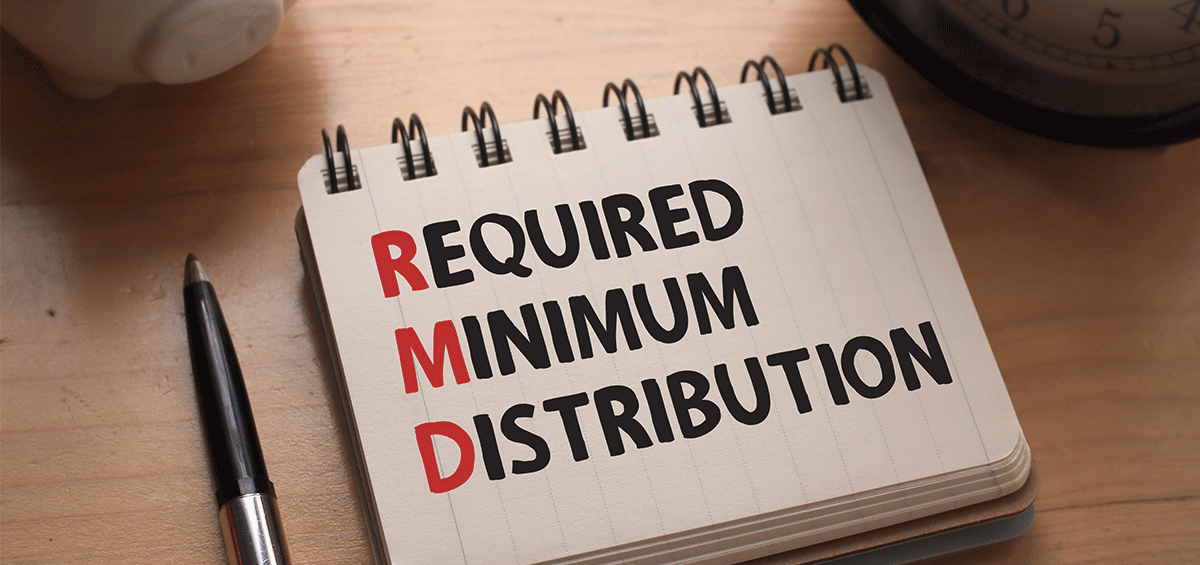In early 2022, the IRS issued proposed regulations regarding required minimum distributions (RMDs) to reflect changes made by the Setting Every Community Up for Retirement Enhancement (SECURE) Act of 2019. The IRS has held off on releasing final regulations so that it can address additional changes to RMDs made by the SECURE 2.0 Act of 2022. In the meantime, the IRS has issued interim relief and guidance for certain RMDs from inherited retirement accounts for 2024. The IRS anticipates that final RMD regulations, when issued, will apply starting in 2025.
RMD basics
Certain RMDs must be taken from individual retirement accounts (IRAs) and employer retirement accounts or a penalty will apply. IRA owners and employees with employer retirement plans must generally take RMDs during their lifetime.
RMDs are generally required to begin by April 1 of the year after the individual reaches RMD age. RMD age is 70½ (if born before July 1, 1949), 72 (if born July 1, 1949, through 1950), 73 (if born in 1951 to 1959), or 75 (if born in 1960 or later). An employee still working for the employer maintaining an employer retirement account may be able to wait until April 1 of the year after the employee retires (if that is later and the plan allows it). The applicable April 1 date is often referred to as the required beginning date (RBD).
Lifetime distributions are not required from Roth accounts and, as a result, Roth account owners are always treated as dying before their RBD. Prior to 2024, these two special rules for Roth accounts applied to Roth IRAs, but not to Roth employer retirement plans.
Beneficiaries must also take RMDs from an inherited retirement account (including Roth accounts) after the death of an IRA owner or employee.
Inherited IRAs and retirement plans
RMDs for IRAs and retirement plans inherited before 2020 could generally be spread over the life expectancy of a designated beneficiary. The SECURE Act changed the RMD rules by requiring that in most cases the entire account must be distributed 10 years after the death of the IRA owner or employee if there is a designated beneficiary (and if death occurred after 2019). However, an exception allows an eligible designated beneficiary to take distributions over their life expectancy and the 10-year rule would not apply until after the death of the eligible designated beneficiary in that case.
Eligible designated beneficiaries include a spouse or minor child of the IRA owner or employee, a disabled or chronically ill individual, and an individual no more than 10 years younger than the IRA owner or employee. The entire account would also need to be distributed 10 years after a minor child reaches the age of majority (i.e., distributed at age 31).
The proposed regulations issued in early 2022 surprised many when they suggested that annual distributions are also required during the first nine years of such 10-year periods in most cases. Comments on the proposed regulations sent to the IRS asked for some relief because RMDs had already been missed and a 25% penalty tax (50% prior to 2023) is assessed when an individual fails to take an RMD.
The IRS has announced that it will not assert the penalty tax in certain circumstances where individuals affected by the RMD changes failed to take annual distributions in 2024 during one of the 10-year periods. (Similar relief was previously provided for 2021, 2022, and 2023.) For example, relief may be available if the IRA owner or employee died in 2020, 2021, 2022, or 2023 and on or after their RBD (see “RMD basics” above) and the designated beneficiary who is not an eligible designated beneficiary did not take annual distributions for 2021, 2022, 2023, or 2024 as required (during the 10-year period following the IRA owner’s or employee’s death). Relief might also be available if an eligible designated beneficiary died in 2020, 2021, 2022, or 2023 and annual distributions were not taken in 2021, 2022, 2023, or 2024 as required (during the 10-year period following the eligible designated beneficiary’s death).The rules relating to RMDs are complicated, and the consequences of making a mistake can be severe. Talk to a tax professional to understand how the rules apply to your individual situation.
Copyright 2006- Broadridge Investor Communication Solutions, Inc. All rights reserved.
Broadridge Investor Communication Solutions, Inc. does not provide investment, tax, or legal advice. The information presented here is not specific to any individual’s personal circumstances.
To the extent that this material concerns tax matters, it is not intended or written to be used, and cannot be used, by a taxpayer for the purpose of avoiding penalties that may be imposed by law. Each taxpayer should seek independent advice from a tax professional based on his or her individual circumstances.
These materials are provided for general information and educational purposes based upon publicly available information from sources believed to be reliable—we cannot assure the accuracy or completeness of these materials. The information in these materials may change at any time and without notice.
*Non-deposit investment products and services are offered through CUSO Financial Services, L.P. (“CFS”), a registered broker-dealer (Member FINRA / SIPC) and SEC Registered Investment Advisor. Products offered through CFS: are not NCUA/NCUSIF or otherwise federally insured, are not guarantees or obligations of the credit union, and may involve investment risk including possible loss of principal. Investment Representatives are registered through CFS. Coastal Federal Credit Union has contracted with CFS to make non-deposit investment products and services available to credit union members.
CFS representatives do not provide tax or legal guidance. For such guidance please consult with a qualified professional. Information shown is for general illustration purposes and does not predict or depict the performance of any investment or strategy. Past performance does not guarantee future results.
Trust Services are available through MEMBERS Trust Company. CFS* is not affiliated with Members Trust Company.






